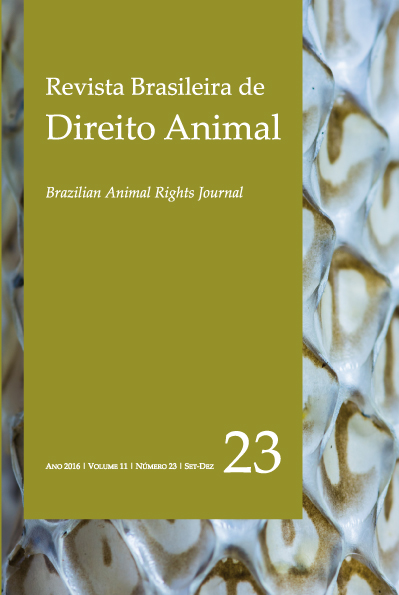BRAZILIAN LAW AND THE RECOGNITION OF THE RIGHTS OF PETS IN CHILDFREE COUPLES
DOI:
https://doi.org/10.9771/rbda.v11i23.20345Palavras-chave:
Domestic Animals, Subject of Law, Childfree Couples.Resumo
The purpose of this scientific work is to analyze the legal status of pets in our legal system, and verify that it is consistent with the defense of their rights in childfree couples as well as the dispute of such when the breakdown of marriage or stable union occurs. The Civil Code categorizes pets as livestock. In order for these animals to have their due regard, they should be treated as subjects of rights, considering that they have the neurological capacity to generate awareness, albeit limited. In this day in age, many couples choose to achieve their parental project with pets rather than with children. Despite this change in the family context, pets are still classified as an asset, which denotes a gap between what society sees, and what the legislation determines. Childfree families with pets are a reality that cannot remain invisible before our legislation and judiciary. Thus, it is necessary to determine which animals are subject to rights according to their condition, through appropriate legislation and even including the issue of childfree couples by discussing custody, the exercise of rights to visitation and pet support. Finally, we used the theoretical method, which consists of works researched, specialized periodicals and electronic documents, as well as the legal collection on the subject.
Downloads
Downloads
Publicado
Como Citar
Edição
Seção
Licença
1. Autores mantém os direitos autorais e concedem à revista o direito de primeira publicação, com o trabalho simultaneamente licenciado sob a Licença Creative Commons Atribuição 4.0 Internacional que permite o compartilhamentodo trabalho com reconhecimento da autoria e publicação inicial nesta revista.
2. Autores têm autorização para assumir contratos adicionais separadamente, para distribuição não-exclusiva da versão do trabalho publicada nesta revista (ex.: publicar em repositório institucional ou como capítulo de livro), com reconhecimento de autoria e publicação inicial nesta revista.
3. Autores têm permissão e são estimulados a publicar e distribuir seu trabalho online (ex.: em repositórios institucionais ou na sua página pessoal) a qualquer ponto antes ou durante o processo editorial, já que isso pode gerar alterações produtivas, bem como aumentar o impacto e a citação do trabalho publicado.












